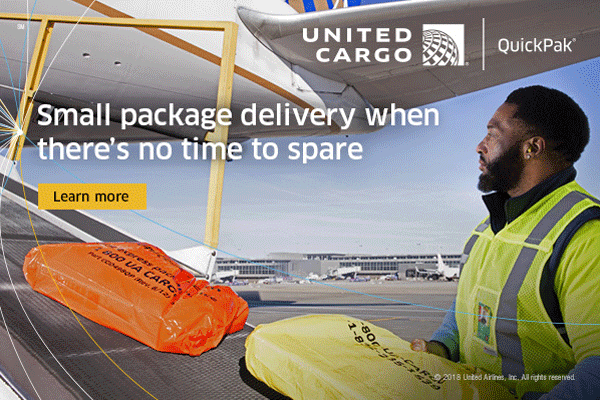The UK’s political contortions continued this week even as it races
towards leaving the EU on Friday, March 29. It now seems an extension
of some sort will see that deadline pass, but one noted analyst told Flying
Typers that whatever happens next, the UK’s economy and standing
in the world have already been harmed.
Wolfgang Lehmacher,
leading logistics consultant and the former Head of Supply Chain and Transport
Industries at the World Economic Forum in Geneva and New York, believes
Brexit is already reshaping European supply chains, irrespective of how
and when the UK departs the Union.
“Companies
have already taken action and built risk provisions, investments and cost
increases in their business plans,” he said. “Already today,
the UK economy has taken its hit.”
According
to Lehmacher, supply chains perform best in fluid and stable environments
– both factors which are negatively impacted by Brexit. “Supply
chain design is a function of market size – this is valid for upstream
procurement activities as well as downstream distribution and after-sales,”
he explained. “Larger markets have their own consolidation points
or hubs benefitting from larger volumes and scale, while smaller markets
are served directly from outside or smaller in-country warehouses, at higher
cost.”
Brexit Or Else
Brexit in whichever form it takes separates
the UK from the world’s largest trading bloc, thereby inevitably
diminishing its importance. “Regardless the efficiencies the UK
may achieve at its borders, [a new border will be] an additional stop
and incremental cost in the supply chain of a not so large market,”
said Lehmacher.
As a result, UK supply chains will be redesigned
and manufacturers will reorganize their European strategies to recognize
the new landscape. “The logistics companies will follow and support
their customers,” he said. “They will, though, take measures
to ensure continuity of smooth operation and operating conditions to be
able to continue to service customers at unchanged terms.”
 |
Locked and Loaded
Many companies have already announced their
post-Brexit strategy, even before the terms of Brexit have been finalized.
P&O, for example, has announced that its cross-Channel ferry fleet
will be re-registered under the Cypriot flag, while Dyson has moved its
headquarters to Singapore where the company will also manufacture its
electric cars. A raft of leading auto companies have also announced plans
to cuts jobs and production in the UK.
“After Brexit, the UK cannot be the
entry door to Europe any more, that’s a fact,” said Panasonic
Europe CEO Laurent Abadie.
Weight & The Risk
Leaders focus on risks and opportunities,
said Lehmacher. This means mitigating Brexit-driven risks in the supply
chain and being creative to capture upside opportunities. “For example,”
he added, “through the creation of additional services to cope with
the challenges brought about by Brexit – the consulting business
is booming and border services will re-emerge – or simply through
price increases justified by the EU exit.”
He also predicted the accelerated closing
of less profitable sites with CEOs now able to cite the increased cost
of the new border in justification. Some may also demand subsidies or
other governmental support to compensate for their additional costs, for
example caused by re-registrations or reduced competitiveness due to VAT
on UK exports to the EU. “All costs of a post-Brexit UK which will
not only need to be added to the exit bill but factored into the cost
of doing business and prices going forward and to be shouldered by UK
tax payers and consumers,” he said.
UK Plans
“Since the referendum in 2016, the
UK government has decided to make available more than GBP£4.2 billion
for EU exit preparation, including more than £2 billion recently
added for no-deal planning,” he said. “The private sector
is forced to pay billions on Brexit. Bank of America spent $400 million
preparing for hard Brexit, according to its CEO. GSK estimates that their
additional costs could be up to £70 million over the next two to
three years. The UK government estimates that the chemicals industry has
to factor in £400 million to re-register chemicals. 7,000 UK civil
servants are working on Brexit, with Treasury funding for 9,000 more.
“The regulation and unavoidable red
tape they produce will not make the flow of goods more fluid and cost-efficient.”
 |
The Shift Within
Unless the UK somehow reverses its decision
to leave the EU, the European supply chain and logistic map will shift
towards a more Continent-centered model. “UK-based European hubs
will become the exception,” he said. “The shift within manufacturing
networks, and transfers of European distribution centers from the UK to
the European continent will strengthen the Benelux, Germany and France
as logistical platforms in the world of global commerce.
Ports On Call
“Ports within the European continent
have the necessary capacity and the warehouse space will be created to
absorb the additional volumes. The shift will help to compensate for potential
shortfalls in volume caused by slowing global economy and trade.”
Ireland will also increase its efforts to
circumvent the UK land bridge through direct routes between Dublin and
the continental European ports. “In April 2018, the Celine, also
referred to as ‘Brexit Buster’ was christened,” he said.
“With almost twice the size of any ferry operating out of Dublin
Port, it can accommodate more than 600 trucks – which as a convoy
would reach a length of eight kilometers.
“The UK container ports Southampton
and Felixstowe will lose the volumes from previously UK based European
logistics centers and European manufacturing sites in the UK, but will
continue to play a vital role in international trade. Heathrow has raised
£1.6 billion to brace Brexit. ‘Leave’ or ‘remain’,
the London-based cargo platform will also continue to grow as an important
global air hub.”
 |
Certainty & Trust
Beyond the supply chain considerations,
certainty and trust are additional negative factors for the UK. “Both
factors determine the level of investment,” said Lehmacher. “Both
factors are quickly destroyed and it takes a long time to rebuild them.
“The UK is a traditional trading place
and enjoys a trust bonus. While trust in the UK might or might not significantly
erode over time, certainty needs to come back if the UK wishes to reduce
or even stop the stream of factory closings and companies leaving the
country.
“Significant incentives will need
to be granted to attract some of the business back. The pressure on results
and the broad set of measures to support businesses will help.
“Leaders in business and government
will experience highest pressures to limit the damage – which will
come at a big cost with highly uncertain gains.
“History will tell whether going through
the pain was eventually worth it.”
SkyKing
 Wolfgang
Lehmacher is thought leader and practitioner in supply chain and logistics.
He was Director, Head of Supply Chain and Transport Industries at
the World Economic Forum in Geneva and New York, Partner and Managing
Director (China and India) at the global strategy firm CVA in Hong
Kong, and President and CEO of GeoPost Intercontinental, the global
expansion vehicle of French La Poste in Paris. He is assisting stakeholders
across the global supply chain ecosystem - from startups, to asset
owners, to Fortune 50 companies - in upscaling and transforming their
organizations. He is a judge at Automotive Logistics Awards Europe,
member of the IATA Air Cargo Innovation Awards Jury and the Logistikweisen,
a think tank under the patronage of the German Federal Ministry BMVI.
Lehmacher is FT, Forbes, Fortune, BI contributor and author of business
books, including The Global Supply Chain. Wolfgang
Lehmacher is thought leader and practitioner in supply chain and logistics.
He was Director, Head of Supply Chain and Transport Industries at
the World Economic Forum in Geneva and New York, Partner and Managing
Director (China and India) at the global strategy firm CVA in Hong
Kong, and President and CEO of GeoPost Intercontinental, the global
expansion vehicle of French La Poste in Paris. He is assisting stakeholders
across the global supply chain ecosystem - from startups, to asset
owners, to Fortune 50 companies - in upscaling and transforming their
organizations. He is a judge at Automotive Logistics Awards Europe,
member of the IATA Air Cargo Innovation Awards Jury and the Logistikweisen,
a think tank under the patronage of the German Federal Ministry BMVI.
Lehmacher is FT, Forbes, Fortune, BI contributor and author of business
books, including The Global Supply Chain. |
On
The Go Listen To The Podcast.
|





 Now
Available On The Following Platforms
Now
Available On The Following Platforms

